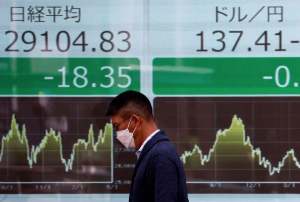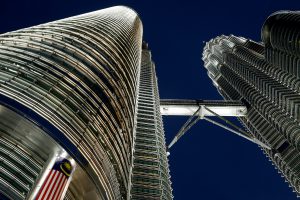(ATF) Never has the success of a medical innovation meant so much to the global economy.
The efficacy, production and rollout of Covid-19 vaccines will be key drivers in new year trades as the progress of the virus that did so much damage to global markets in 2020 accelerates into 2021.
More than that, the stark realities of the fragility of global societies laid bare by the threat of imminent wide-scale premature death, may even reshape the very nature of investing and markets for the longer-term.
Vaccines remain the most viable way to defeat the coronavirus pandemic. Only by immunising the world against the scourge can nations’ economies return to a semblance of normal, so the assumptions of economists go.
“The long vaccine runway suggests more price evolution in 2021 for stocks and oil,” wrote Stephen Innes, Chief Global Market Strategist at Axi. “As more people get vaccinated, they are likely to return to those activities most impacted by COVID-19, such as dining out, travelling, and other personal service-related areas.”
The potency of the vaccine trade has already been demonstrated, with the Bank for International Settlement saying that risky assets – a barometer of investor confidence – saw an influx of capital from November after the first treatments were given the go-ahead for full rollout.
Also Read on ATF
- China seeks to become a global commodities market player
- Chinese demands on nuclear power ‘complicate EU investment talks’
- China market regulator announces monopoly probe into Alibaba
That trade could deepen in Asia’s capital markets in 2021 with dealmakers confident the record-breaking pace of funds raising in the past year should be maintained in the new year.
Equity capital markets (ECM) deals in the Asia Pacific region, including Japan, totalled $439.1 billion in 2020, the highest ever, which accounted for 41% of the world’s total of $1.06 trillion according to Refinitiv data.
The contribution by the Asian region to the global total value of capital raising was the most since 2010, which advisers attributed to some countries, led by China, emerging from the pandemic faster than the rest of the world.
In Asia, healthcare deals recorded the strongest growth in the past year, up 148.6% in terms of money raised, and bankers believe the global roll out of the coronavirus vaccine will see the sector dominate the local capitals market again in 2021.
“There is a window of opportunity for COVID-related trades to raise money in 2021,” said Selina Cheung, managing director of Asia ECM origination at UBS in Hong Kong.
“We expect to see more health-related and vaccine companies coming to the market in the first half.”
Dealmakers surprised
The pace of capital market activity throughout the year surprised dealmakers who had expected reduced activity until unprecedented liquidity from governments and central banks began flooding the global system.
Almost $7.5tn has been spent by global central banks in 2020 to cushion the economic impacts created by coronavirus, according to the IMF’s annual report published in November.
“A lot of people did not expect this level of activity in the market but it’s been very welcome and it’s been a good boost to the economy as it has injected a lot of capital that has been needed,” said Kenneth Ho, Managing Director of ECM at Haitong International.

“The market is driven by liquidity and it should remain in place for a while to come.”
Hong Kong will finish 2020 as the world’s second most-popular IPO venue behind the Nasdaq with 119 deals worth $31.21bn, the Refinitiv data showed.
For the longer term, even assuming the vaccines live up to their promise, the nature of investing may never return to pre-pandemic characteristics.
Coronavirus’ suspected emergence from bats or other creatures has prompted many to see links between human abuse of the natural world and the economy.
Consequently, the growing awareness of the need for sustainable economic policies and investing has accelerated.
“A humanitarian crisis of epic proportions has compelled us to reimagine our lives in terms of how we behave, function, work, consume and interact,” wrote Kamal Suppal, founder of Emerging Markets Alternatives. “This watershed phase in our lives will redefine business models, pricing structures, supply chains, use of technology and data management and yes-our attitudes toward society and the world at large.
“Therefore, financial asset prices would no longer be restricted to just plain underlying economics, but investors would also need to be acutely aware of geopolitics, public policy, and societal concerns. As a result, it behooves investors to view world economies, and associated capital markets through a new set of investment lens in this regime change rather than simply bet on a recovery.”
- Reporting by Reuters
























